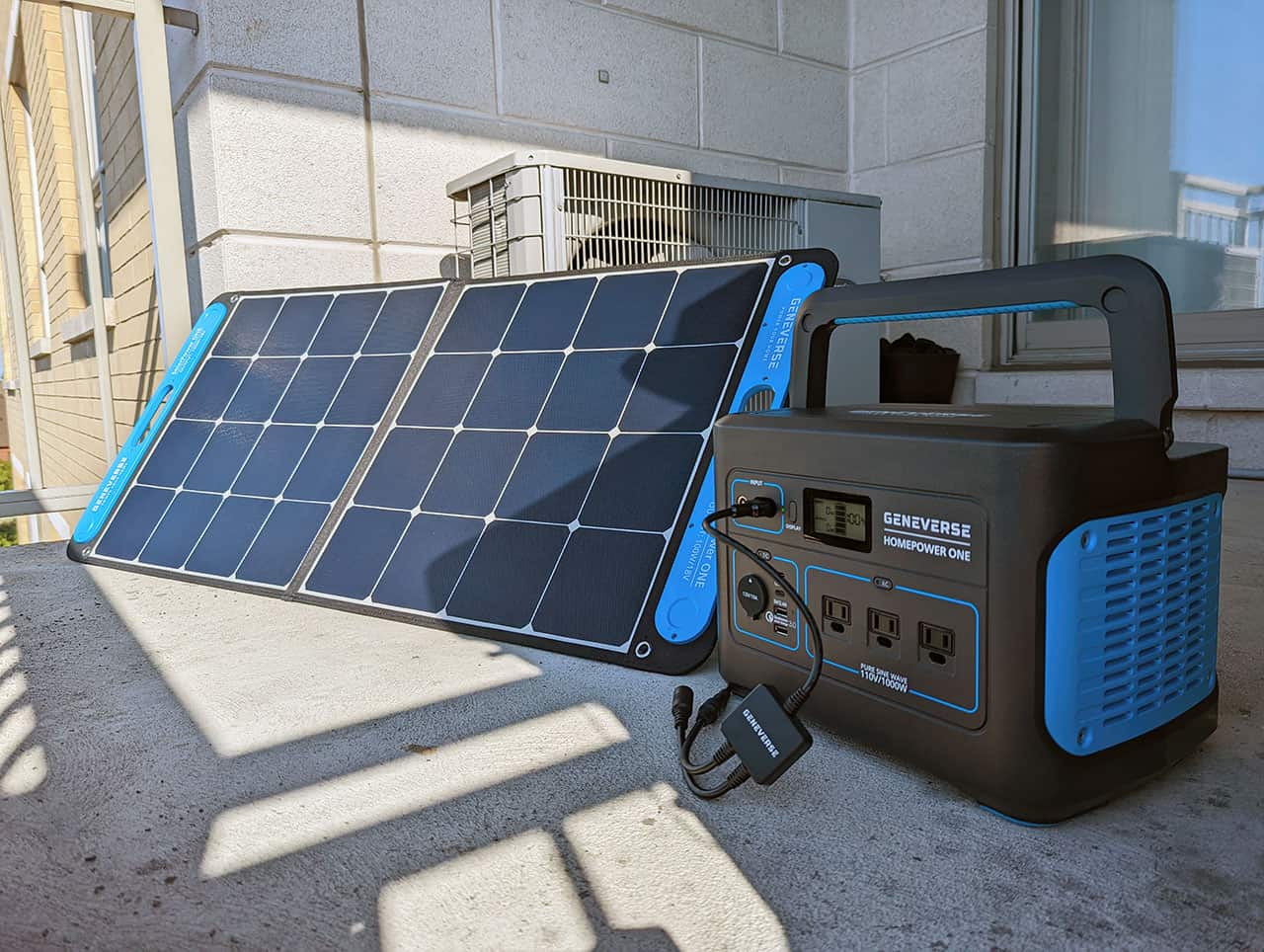Did you know that power outages are one of the most common natural disasters in the United States? In fact, according to the National Weather Service, there are an average of more than 2,000 reported power outages each year.
If you live in an apartment and don’t have a backup plan for when the power goes out, you could be in for a long night. Solar generators are a great way to keep your family safe and comfortable during a power outage. They provide an emergency backup power supply that can keep your lights on, your appliances running, and your phone charged. Plus, they’re eco-friendly and affordable, making them the perfect choice for people who live in apartments.
In this blog post, I’ll discuss the benefits of using a Geneverse HomePower ONE Series Solar Generator as your power outage emergency kit. I’ve been testing one for a few weeks now and have a pretty good idea of where they excel.
But first, let’s start with the basics.
What is a solar generator? What are its benefits over other emergency power sources?
A solar generator is a portable power system that uses solar panels to convert sunlight into electricity. The electricity is stored in a battery and can be used to power lights, appliances, and other devices during a power outage. Solar generators are eco-friendly, quiet, and easy to use.
Benefits of Solar Generators:
- Solar generators are eco-friendly. They don’t produce emissions or pollutants, making them a safe choice for people concerned about the environment.
- Solar generators are quiet. Unlike gas generators, they don’t make noise, so you can use them without disturbing your neighbors.
- Solar generators are easy to use. You don’t need special skills or training to use one. Just set it up in a sunny spot and let the solar panels do their job.
The dream of inexpensive solar power is quickly becoming a reality. Solar generators are becoming increasingly popular as people look for ways to save money on their electric bills. In addition, solar generators are a great way to prepare for power outages.
How do you choose the right solar generator for your needs – size, features, price point, etc.?
When choosing a solar generator, you’ll want to consider its size, features, and price point.
- Size: Solar generators come in a variety of sizes. Choose one large enough to power your essential devices during a power outage but not so large that it’s challenging to store or transport.
- Features: Solar generators have various features, such as USB ports, AC outlets, and inverters. Choose a model that has the features you need.
- Price point: Solar generators range in price from around $100 to $1000. Choose a model that fits your budget and offers the needed features and power.
After having tested one for a few weeks, I believe that the Geneverse HomePower PRO Series Solar Generator is the perfect choice for people who live in apartments. It’s eco-friendly, quiet, and easy to use. Plus, it has various features that make it ideal for powering your essential devices during a power outage.
Let me elaborate…
Here’s what I think of my HomePower ONE Series Solar Generator kit.
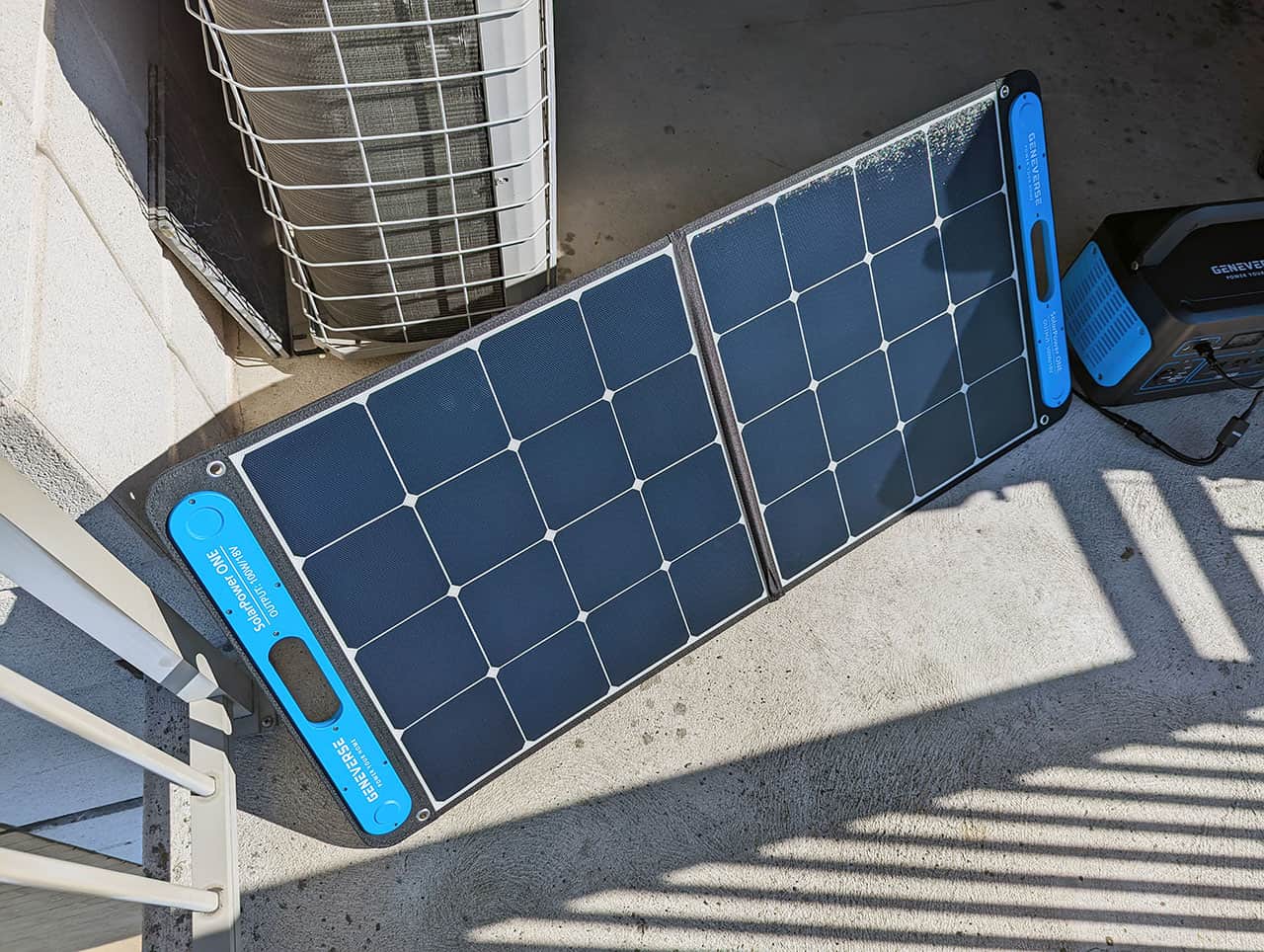
I’ve wanted an emergency solar power supply for years, i.e., a set of solar panels and a big, beefy battery pack. The trouble was that they were prohibitively expensive, and I lived in an apartment and didn’t have a great place to store them. So when I saw that the Geneverse HomePower ONE Series Solar Generator kit was available, I jumped at the chance to get one.
The battery packs in a 1,002Wh capacity and has a 1000W rated power and 2000W surge power at 110V. The quality that excited me most about this kit is that everything is compact and packs away easily. I was able to store the solar panels under my bed and the battery pack in a closet.
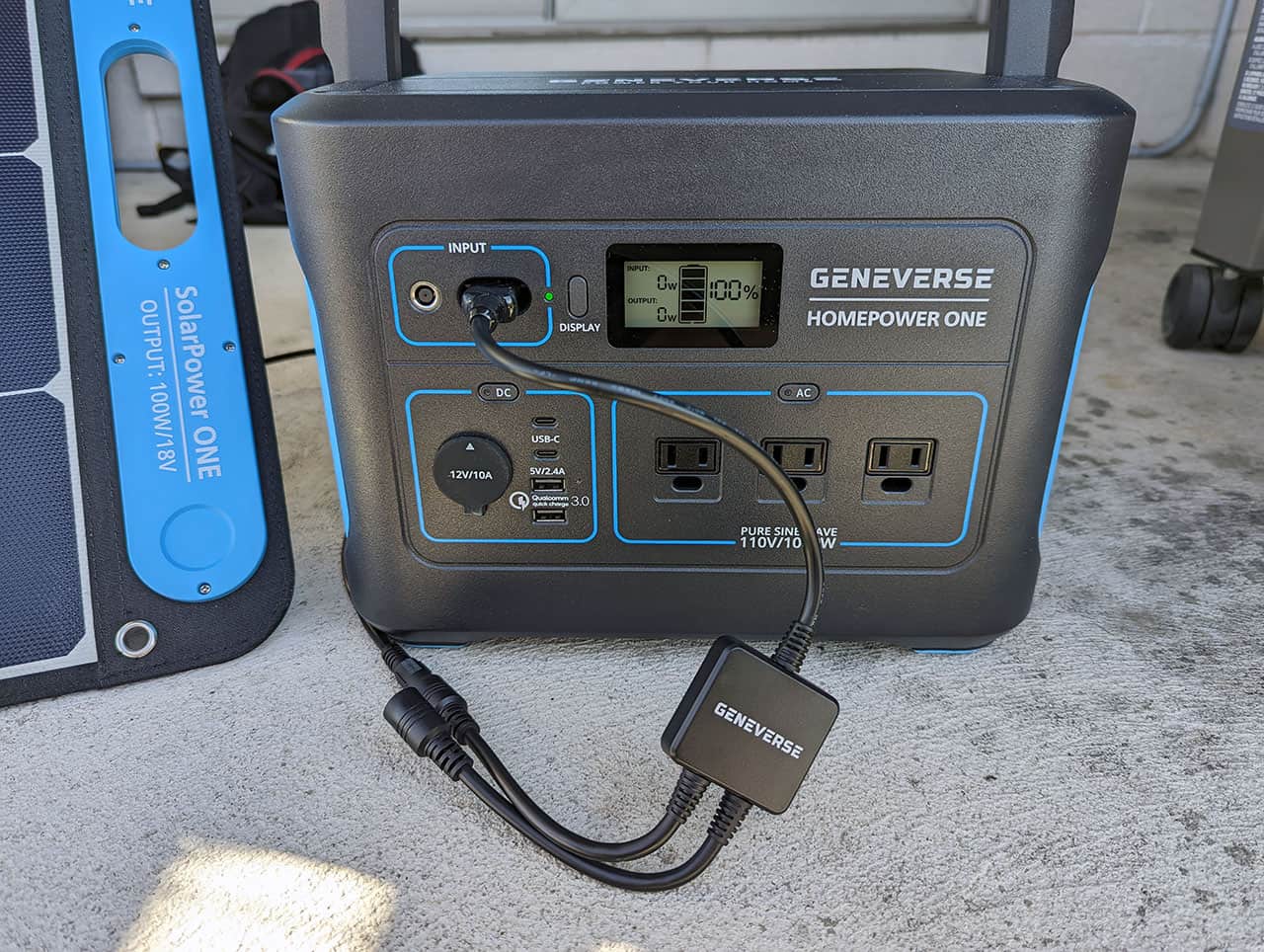
The kit also has an AC inverter to plug in standard (small) appliances like a coffee maker or mini-fridge. I’ve tested it for a few weeks, and it’s been working great. The power output is stable, and I haven’t had any issues with it.
I think the Geneverse HomePower ONE Series Solar Generator is an excellent choice for people who live in apartments and don’t have a lot of space to store emergency power supplies. It’s compact, easy to use, and very affordable. I highly recommend it to anyone living in a region with unstable power, history, or expectation of extreme weather events.
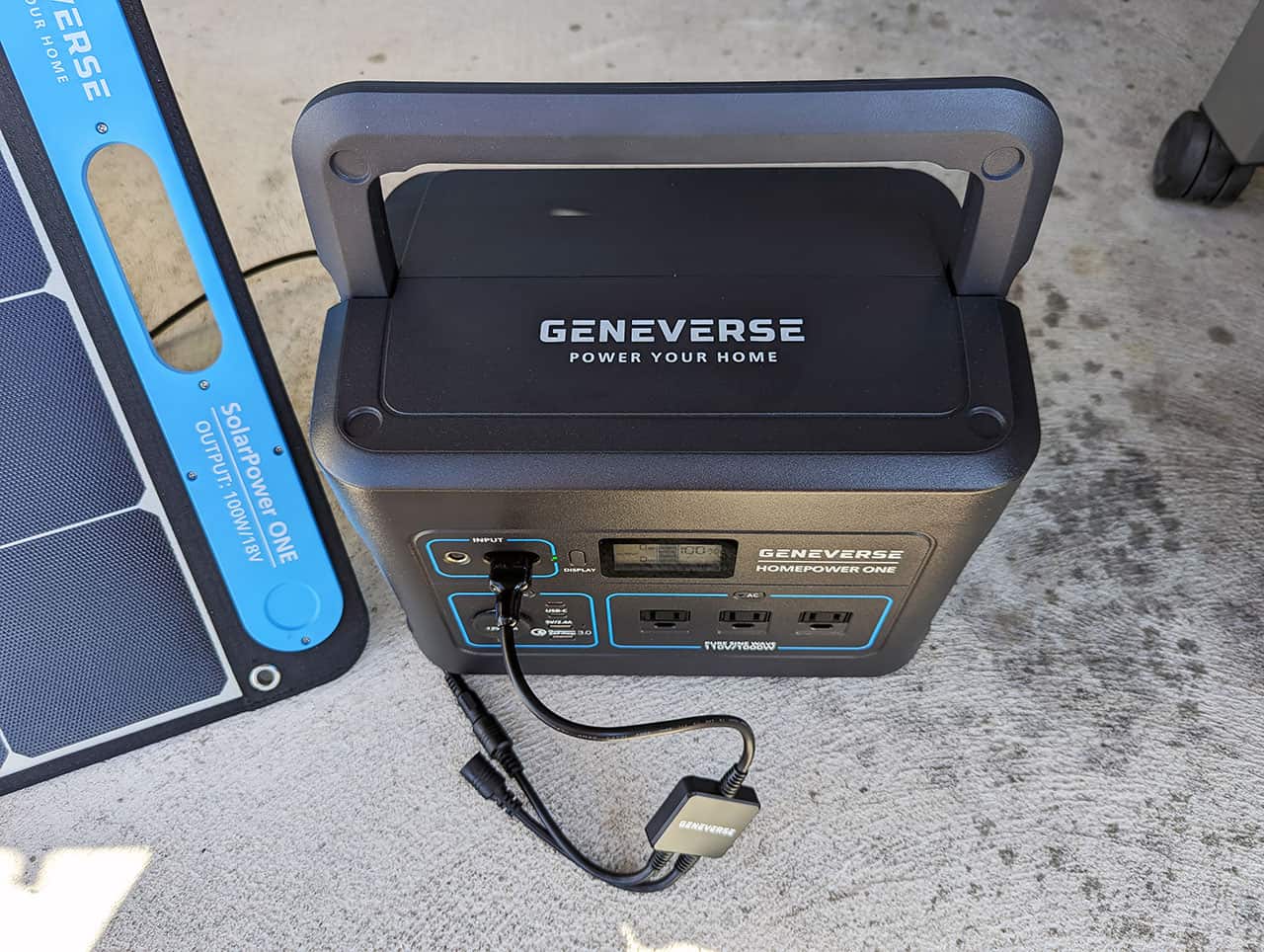
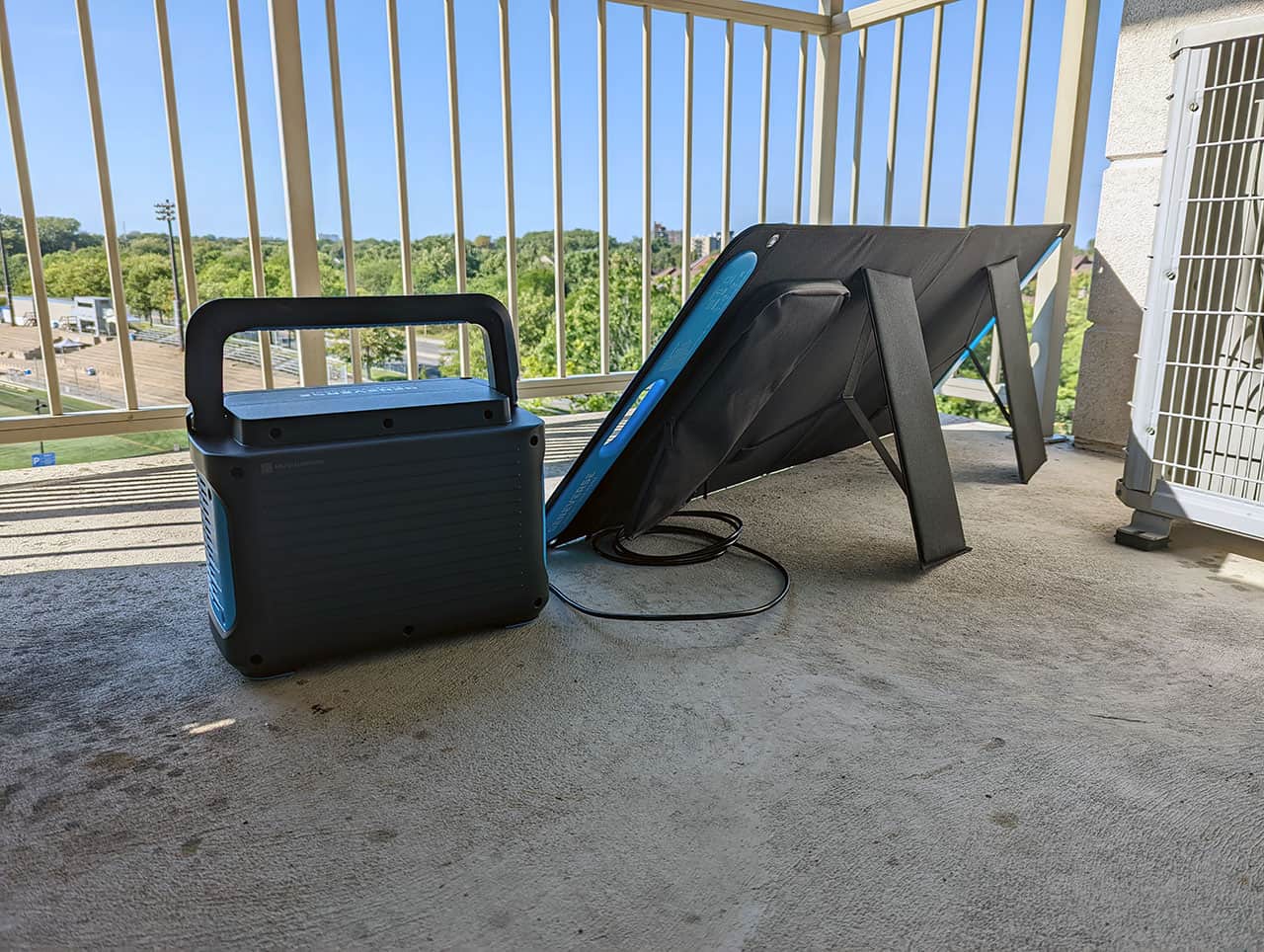
Having spent a few nights in the cold in the dead of winter because of power outages, I can say from experience that I would have loved to have a battery pack that I could use to run a small portable heater.
What should you consider when assembling your emergency kit – food, water, medical supplies, communication devices, etc.?
When assembling your emergency kit, you’ll want to consider food, water, medical supplies, communication devices, and other essential items.
- Food: Choose non-perishable food that doesn’t require cooking or refrigeration.
- Water: Store at least a gallon of water per person for three days.
- Medical supplies: Include any prescription medications you or your family members take, as well as over-the-counter medications, first-aid supplies, and other essential items.
- Communication devices: Choose a battery-powered or hand-crank radio to stay informed during a power outage.
- Other essential items: Flashlights, candles, matches, blankets, and sturdy shoes are just a few of the other things you’ll want to include in your emergency kit.
You’ll be prepared for anything with a solar generator as part of your power outage emergency kit. Choose a model that fits your needs and budget, and assemble your kit with essential items like food, water, medical supplies, and communication devices. A solar generator can keep your essential devices powered during a power outage. If you want to save time and effort, you can purchase a pre-prepared survival backpack for the other essentials I mentioned.
Are there any other steps you can take to prepare for a power outage or natural disaster that could affect your home or community?
There are a few other steps you can take to prepare for a power outage or natural disaster:
- Learn how to turn off the utilities in your home.
- Keep a supply of cash on hand in case ATMs are not working.
- Depending on the season, plan for staying cool or warm during a power outage.
- Keep a list of emergency contacts handy.
By taking these steps, you’ll be as prepared as possible for a power outage or natural disaster. A solar generator is an excellent addition to your emergency kit, and it can give you the peace of mind that comes with knowing you’re prepared for anything.
